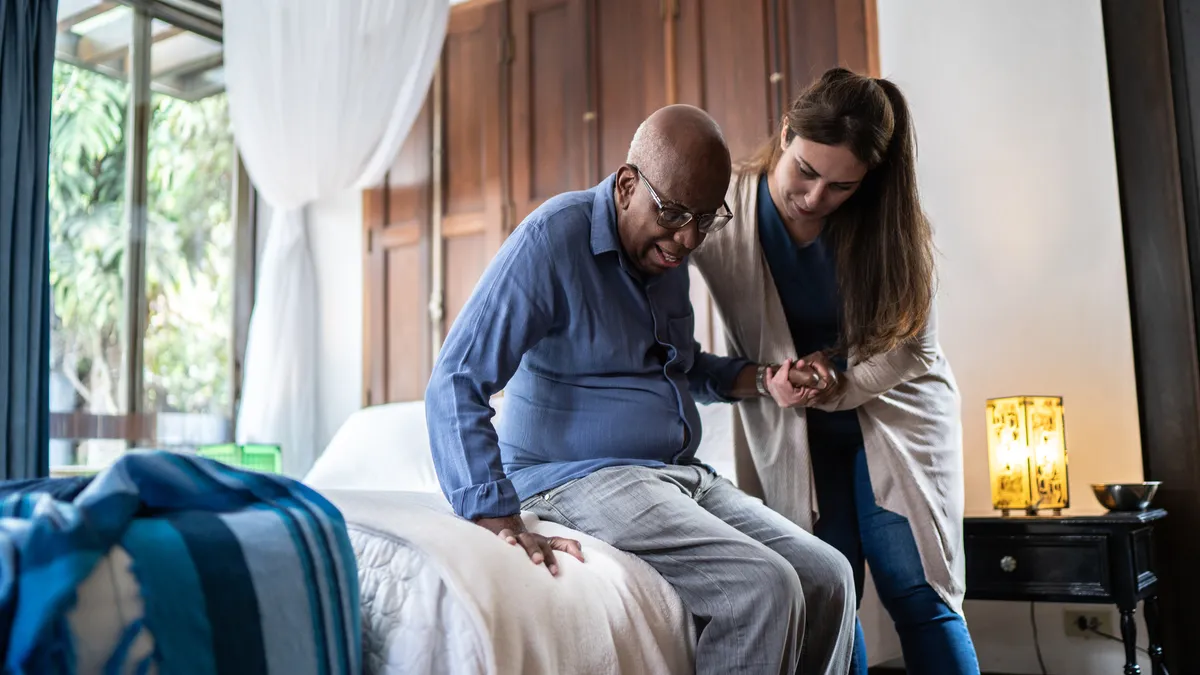Dive Brief:
- A Pennsylvania home-care company and its owner must pay $293,990 in back wages and liquidated damages to 75 caregivers after federal investigators found they intentionally misclassified the workers as independent contractors and misapplied an overtime rule to avoid the payments, the U.S. Department of Labor announced Aug. 22.
- Investigators for DOL’s Wage and Hour Division found the caregivers worked 40 to 90 hours per week, according to the DOL. Investigators also found the employers failed to keep and preserve payroll records for two years, as required by the Fair Labor Standards Act. The WHD determined they owed the caregivers $146,995 in back wages and an equal amount in liquidated damages under the FLSA. WHD also assessed a $66,956 civil money penalty due to the willful nature of the violations, the DOL said
- DOL filed a complaint to recover the money, the announcement said. When the employers failed to respond to discovery requests and a court order to produce discovery, the DOL asked for sanctions, the agency said. The company and the owner agreed to enter a consent judgment to avoid further litigation, the DOL added.
Dive Insight:
In 2019, there were 54.1 million individuals age 65 and older in the U.S., up from 39.6 million in 2009, according to the federal Administration for Community Living, a division of the U.S. Department of Health and Human Services. That population is projected to reach 80.8 million by 2040, the ACL said.
To serve their needs, employment in the home healthcare and related healthcare industries is expected to add about 2.6 million new jobs between 2020 and 2030, a nearly 16% growth rate and faster than the average for all occupations, the Bureau of Labor Statistics reports.
Unfortunately, as the need for services explodes, home health and related care providers struggle to recruit and retain workers, an issue directly tied to low pay and persistent FLSA violations, the DOL has repeatedly said. “Employers who abide by the law will have the competitive advantage over those who do not,” WHD District Director John DuMont said in the Aug. 22 announcement.
The agency is aggressively pursuing alleged violators: The amount of back wages and damages it recovered from healthcare employers steadily increased from $11.9 million in 2019 to $13.8 million in 2021, according to DOL statistics.
In July, for example, the DOL obtained a preliminary injunction and restraining order against a Virginia-based assisted living provider to prevent it from obstructing a WHD investigation into allegations it forged payroll records. The injunction and restraining order also prevented the provider from retaliating against employees who speak to investigators.
Calculating “hours worked” under the FLSA can get tricky for employers in the care industry, including home care and assisted living providers. In a May webinar, a WHD specialist gave examples of what hours have to be included in the calculation.
One scenario involved the distinction between “engaged to work” (compensable time) and “waiting to be engaged” (not compensable). For example, a home health care worker who takes time to sit and read while a client is sleeping has been engaged to wait, and this time must be included in hours worked.
Another common FLSA violation is failing to compensate workers for the time they spend traveling between job sites, the specialist noted. The time must be counted as hours worked, she said.












